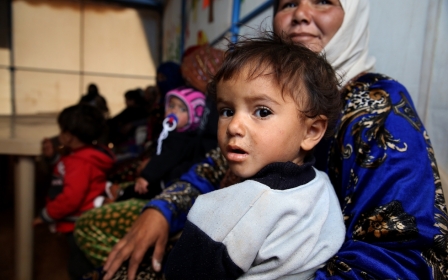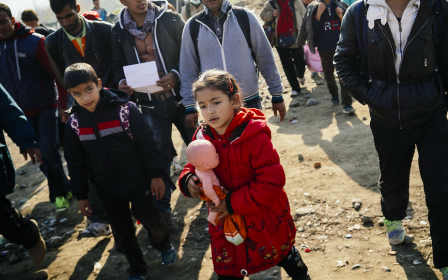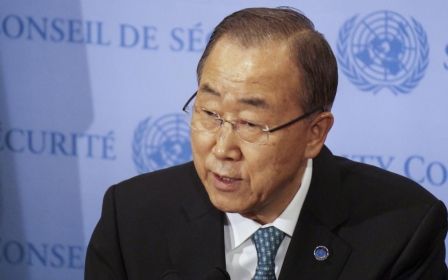Scotland receives first group of Syrian refugees under new scheme

About 100 Syrian refugees arrived in Glasgow on Tuesday as part of the British government’s new resettlement scheme announced in September.
The group of families have been living in camps in Lebanon, Jordan and other countries close to Syria.
Glasgow City Council will house half of their number, while 10 other local authorities in Scotland will look after the remainder.
The British government has said it will bring 1,000 Syrian refugees to the UK by Christmas, and 20,000 over the next five years. Scotland will take in a total of 2,000 Syrian refugees under the scheme.
One Syrian family arriving in Glasgow told the BBC they had come to the UK to live a peaceful life far away from the war at home.
Qassem, Hiba and their two-year-old daughter Hajar fled to Jordan in 2013 from their hometown of Deraa in southern Syria. They said they left their homes due to constant bombing and because they "had no future or security".
Qassem, who suffered polio as a child, said he wanted to leave the refugee camp in Jordan for the UK so he "can have a future and have the medication I need, to have a future for my children and for my wife".
"Thanks to God, my dream became true," he said.
His family will be fully supported by the British government and will receive housing, medical care and education for their young daughter.
Humza Yousaf, Scotland’s Minister for Europe and International Development, said the new arrivals marked "a proud day for our country".
"When the most vulnerable needed compassion and humanity we were there," he wrote on Facebook. "Let’s accept refugees into our communities and give them a good Scottish welcome."
The National newspaper dedicated its front page on Tuesday to welcoming the Syrian families.
Two Scottish politicians Natalie McGarry and Mhairi Black released a video message welcoming the Syrians to their country.
The refugees arrived at Glasgow Airport just days after a series of deadly attacks in Paris claimed by the Islamic State group left at least 129 people dead.
A passport found at the site of one of the attacks belonged to a Syrian national who entered Europe as a refugee in October.
This has led to more than a dozen state governors in the United States to try and block Syrians from seeking refuge in their country.
However, intelligence officials say the passport may have been stolen or faked, and attackers identified by authorities so far are either French or Belgian citizens.
Refugee backlash
Scotland has also faced some resistance to the resettlement. On Saturday, far-right protesters clashed with rights activists in Monkton, south Ayrshire, where it is believed the refugees will be given initial emergency accommodation.
A public event planned to welcome the refugees to Glasgow on Tuesday has been cancelled, for fear of attracting negative attention.
However, a rally will take place on 28 November in Glasgow to welcome the refugees.
“Glasgow doesn’t turn its back to those facing a humanitarian crisis,” Glasgow City Council deputy leader Archie Graham told local media.
When attending a minute’s silence for victims of the Paris attacks at a mosque in Glasgow on Monday, Scotland’s First Minister Nicola Sturgeon urged people to understand the plight of refugees.
“We need to show that we are a country of compassion and acceptance,” she said. “These are people fleeing their homes in the search for protection and security, and we are their refuge.”
Sturgeon has provided reassurances to the Scottish public that the arriving refugees have gone through “stringent” security checks and she has reiterated that the Syrian families pose no threat to Scottish security.
Middle East Eye propose une couverture et une analyse indépendantes et incomparables du Moyen-Orient, de l’Afrique du Nord et d’autres régions du monde. Pour en savoir plus sur la reprise de ce contenu et les frais qui s’appliquent, veuillez remplir ce formulaire [en anglais]. Pour en savoir plus sur MEE, cliquez ici [en anglais].




